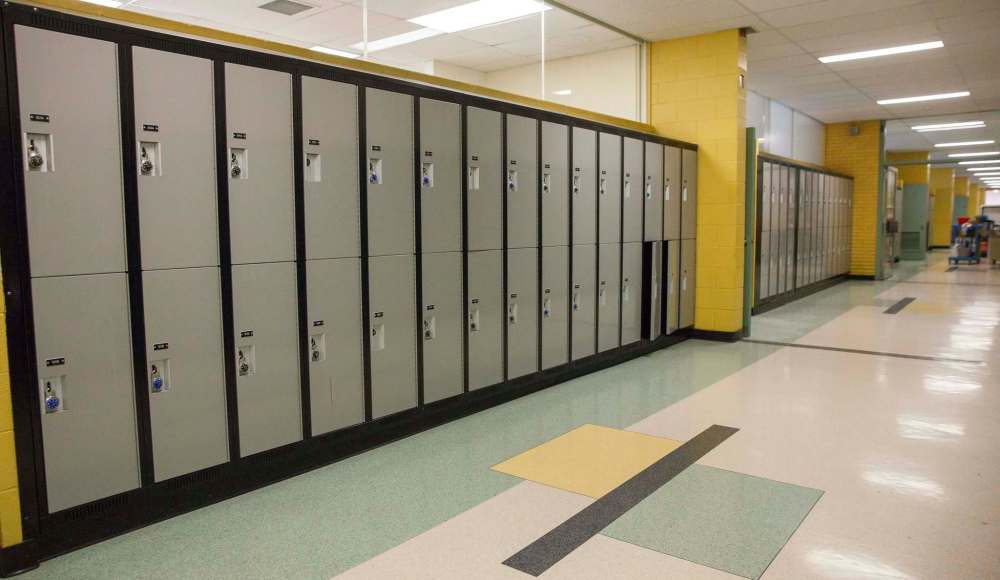Content clause a concern for teachers
Education reform will require parents to be informed of 'potentially sensitive' lesson subjects, allow opt-out
Advertisement
Read this article for free:
or
Already have an account? Log in here »
To continue reading, please subscribe:
Monthly Digital Subscription
$0 for the first 4 weeks*
- Enjoy unlimited reading on winnipegfreepress.com
- Read the E-Edition, our digital replica newspaper
- Access News Break, our award-winning app
- Play interactive puzzles
*No charge for 4 weeks then price increases to the regular rate of $19.00 plus GST every four weeks. Offer available to new and qualified returning subscribers only. Cancel any time.
Monthly Digital Subscription
$4.75/week*
- Enjoy unlimited reading on winnipegfreepress.com
- Read the E-Edition, our digital replica newspaper
- Access News Break, our award-winning app
- Play interactive puzzles
*Billed as $19 plus GST every four weeks. Cancel any time.
To continue reading, please subscribe:
Add Free Press access to your Brandon Sun subscription for only an additional
$1 for the first 4 weeks*
*Your next subscription payment will increase by $1.00 and you will be charged $16.99 plus GST for four weeks. After four weeks, your payment will increase to $23.99 plus GST every four weeks.
Read unlimited articles for free today:
or
Already have an account? Log in here »
Hey there, time traveller!
This article was published 03/04/2021 (1713 days ago), so information in it may no longer be current.
The province is touting sweeping reforms to modernize public education, but teachers say a clause in Bill 64 will require them to inform parents about lessons on “potentially sensitive content” in advance so families can opt-out is backward.
The Education Modernization Act will replace Manitoba’s 37 elected English school boards with a board of government appointees that will, among a lengthy list of responsibilities, create a policy on “potentially sensitive content” and ensure it’s implemented in all public schools.
The legislation defines such content as phys-ed and health lessons that deal with human sexuality, substance use and abuse prevention, and personal safety.

Should these lessons conflict with a family’s religious, cultural or family values, caregivers will be able to withdraw their student and provide alternative lessons at home.
The bill formalizes existing education department policy, and what some school divisions already strictly enforce, but it is not a universal practice in the province at present.
Winnipeg teacher Patrick McGuire said the province wants to formalize an “archaic loophole” so parents can shield students from learning about the LGBTTQ+ community, as well as gender identity, fluidity and diversity.
“People are entitled to have whatever ethical or moral or religious beliefs that they want to have, but the idea that they don’t have to learn and they don’t have to understand and treat humans with basic respect — it seems ridiculous to me,” said McGuire, who typically teaches high school history and social studies, and is a member of Manitoba Educators for Social Justice.
If the province wants to truly modernize education, he said it should update a sex-ed curriculum that has seen few changes since 2005.
As for the legislation’s language around substance use and personal safety, McGuire questions why providing students with information on how-to protect themselves is controversial.
The Manitoba Teachers’ Society has flagged the sensitive content clause in Bill 64 as a key issue among its more than 16,000 members.
“The creation of a provincial board whose members are appointed by politicians sets the stage for a regressive, agenda-driven curriculum with no consideration for the unique needs of students,” said MTS president James Bedford, in a statement to the Free Press.
Bedford added MTS believes teachers who are trained and certified should be consulting on and informing curriculum, rather than partisan appointees.
“We believe parents have the right to know what their children are being taught,” Education Minister Cliff Cullen said in a prepared statement.
Cullen noted the new authority will be required to create a policy on respect for human diversity — which will, according to Bill 64 “accommodate” the creation of gay-straight alliances and other student groups that promote everything from anti-racism to gender equity — to ensure schools are safe and inclusive spaces.
The Manitoba Association of Parent Councils has applauded the province requiring teachers to ensure parents are more in-the-know about lessons on sensitive topics so families can ensure age-appropriate lessons are being taught.
Erica McNabb, however, is worried about how the policy will further marginalize queer and non-binary families.
“As a queer parent, I find it frustrating that some of what we just experience as normal, everyday life and just as a family would now be provincially-legislated as sensitive content… It just means that our families become further taboo and further misunderstood,” said McNabb, a sexual health educator in Winnipeg, who often works in public schools.
It isn’t lost on McNabb (who uses they and them pronouns) that lessons their family considers sensitive — for instance, kindergarten Father’s Day cards and crafts — are not deemed so by the province.
McNabb added it’s unlikely parents who don’t want students learning about “sensitive content” in class will undertake thorough, accurate lessons on such subjects at home.
maggie.macintosh@freepress.mb.ca
Twitter: @macintoshmaggie

Maggie Macintosh reports on education for the Winnipeg Free Press. Funding for the Free Press education reporter comes from the Government of Canada through the Local Journalism Initiative.
Our newsroom depends on a growing audience of readers to power our journalism. If you are not a paid reader, please consider becoming a subscriber.
Our newsroom depends on its audience of readers to power our journalism. Thank you for your support.
History
Updated on Saturday, April 3, 2021 9:02 AM CDT: Corrects misspelling of minister's name.



